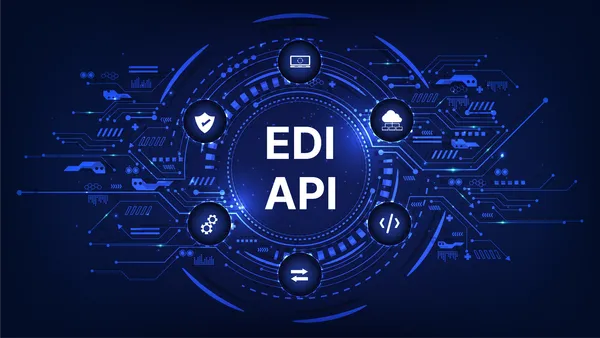Dive Brief:
- The majority of blockchain platform implementations, 90%, will demand replacement within 18 months to "remain competitive, secure and avoid obsolescence," by 2021, according to Gartner.
- CIOs overestimate available blockchain platforms, according to the research. The current state of blockchain platforms have fragmented offerings and created overlap, "making technology choices confusing" for IT leaders, Gartner said.
- Blockchain vendors use messaging that doesn't translate to an enterprise customer's needs, Gartner research found. Transactions and security are among the top affiliated functions with the ledger technology, but potential buyers are "confused" by whether or not blockchain can accomplish tasks better than other, readily available tools.
Dive Insight:
Blockchain is having an identity crisis, constrained by assumptions and technological immaturity prohibiting efforts from moving beyond the pilot phase.
Industry often associates blockchain with the "Wild West of cryptocurrencies and initial coin offerings," according to Forrester. Ditching the term blockchain for distributed ledger technology might help develop its reputation.
Companies need to "prepare for rapid evolution, early obsolescence, a shifting competitive landscape, future consolidation of offerings, and the potential failure of early stage technologies/functionality," in blockchain offerings, said Adrian Lee, senior research director at Gartner, in the report.
Gartner expects a "multiplatform world" to emerge as opposed to one prevailing platform because of the lack of unified product concept or core application requirements.
Still, the underlying technology is attractive and its potential use cases vary across industries. Blockchain's business value will add up to more than $176 billion by 2025, Gartner said. But by 2030, the value will top $3.1 trillion.
Even with hurdles and an uncertain future of current, companies are jumping at the tech. Starbucks is a heavy investor in the technology after announcing its "bean to cup" promise last year.
Since then, the coffee chain teamed up with Microsoft to use its Azure Blockchain Service to track each stage of the coffee bean's journey in the supply chain. The "shared, immutable ledger" will eventually extend to customers, so they can take part in viewing their drinks' digital traceability.
The supply chain industry as a whole, however, is more wary of adopting the tech. Less than one-fifth of supply chain professionals consider blockchain an important technology for their business, and even fewer, 9%, have invested in it.
Companies are unable to find an off-the-shelf blockchain solution, complicating and stunting their ability to use it. Hybrid offerings of conventional blockchain platforms are adding further confusion to justifying a use case.














